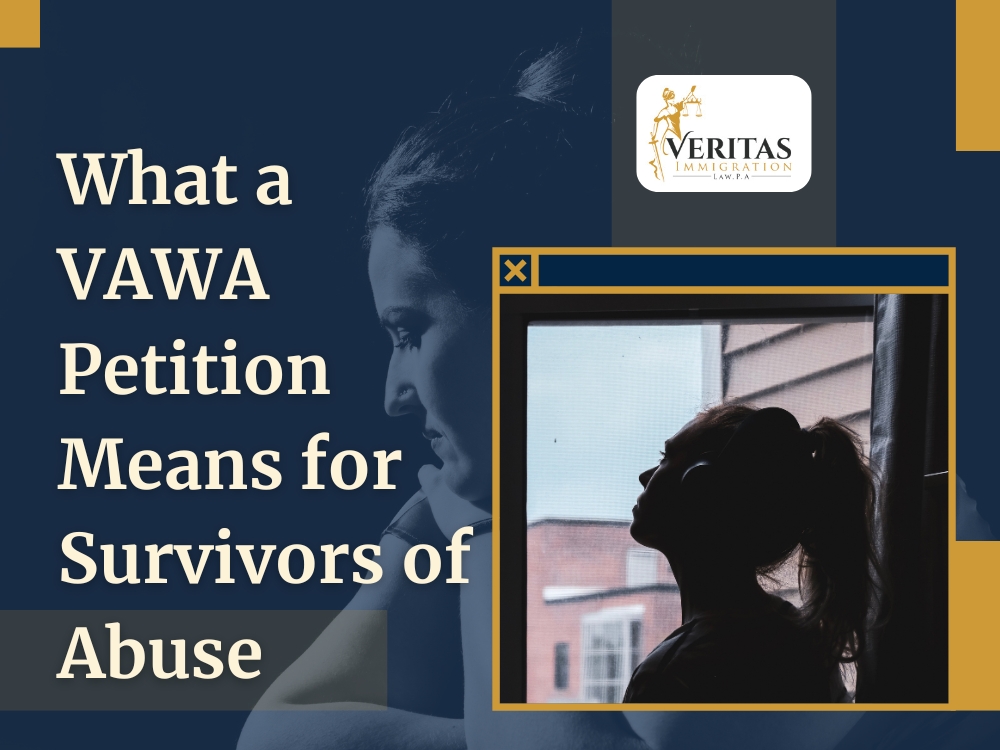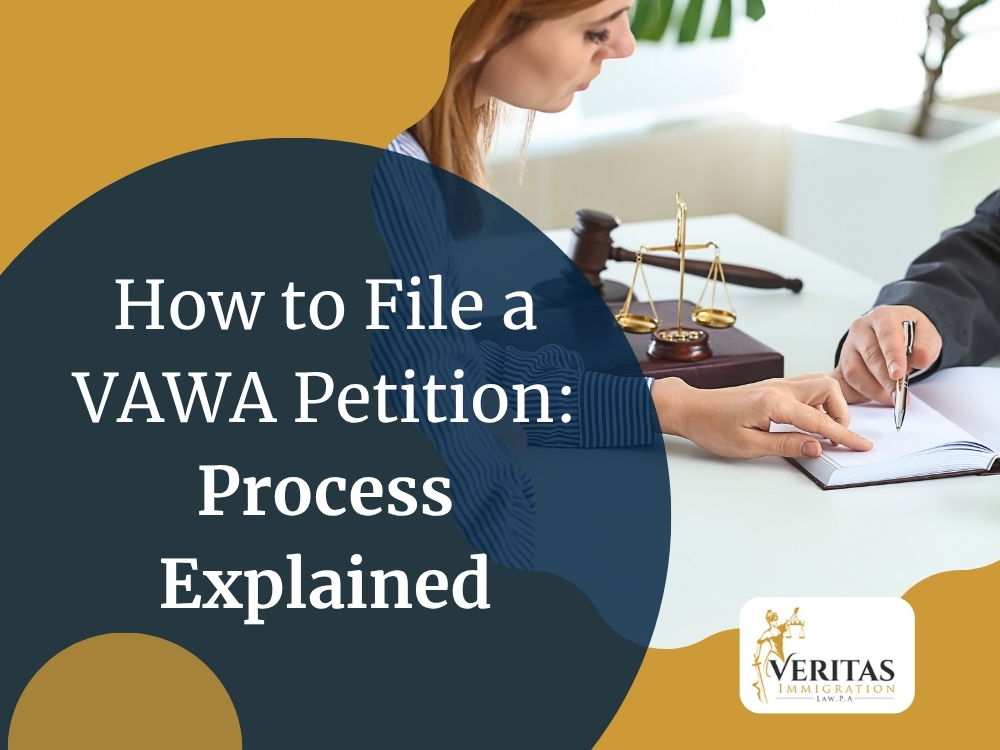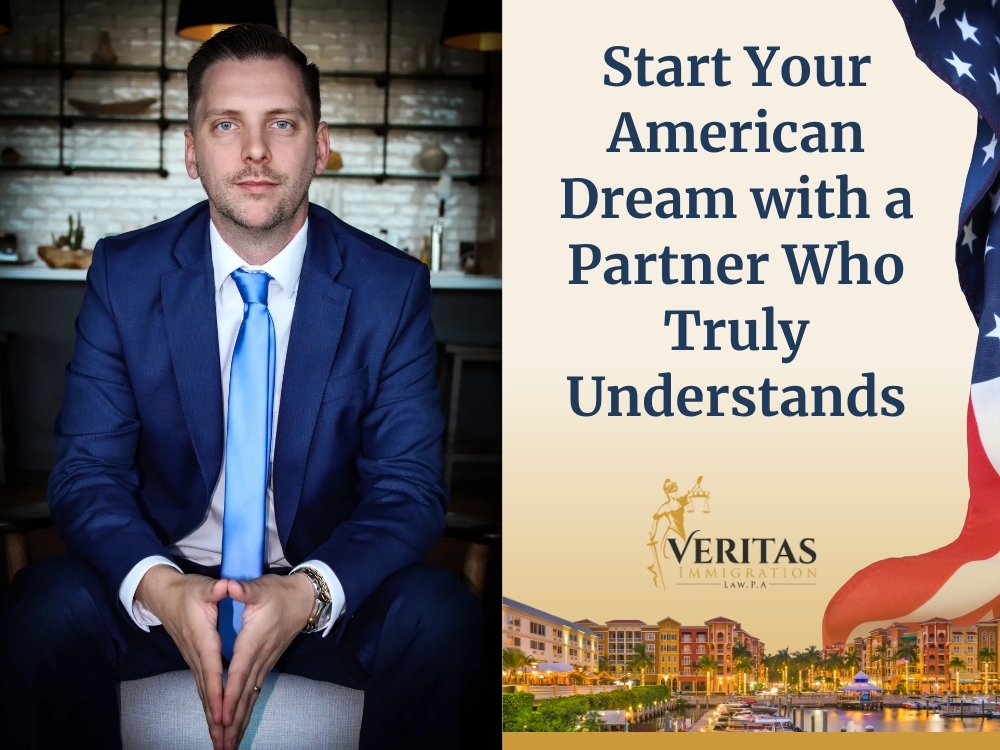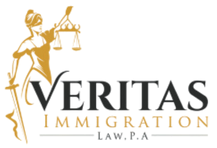VAWA Petition Guide
The VAWA petition was created to protect individuals who have suffered abuse at the hands of a U.S. citizen or lawful permanent resident spouse, parent, or child. If this applies to you, the law gives you the ability to apply for immigration benefits without your abuser’s involvement or consent. This process can help you move forward toward safety, independence, and lawful status in the United States.
At Veritas Immigration Law, we are committed to helping you understand your rights and supporting you throughout the process. If you believe you may qualify for a VAWA petition, we encourage you to schedule a consultation with our VAWA lawyer so we can discuss your situation and guide you through the steps needed to protect your future.
Table of Contents
Ready to File Your VAWA Petition? We’re Here to Protect Your Future.
Your safety and independence matter. At Veritas Immigration Law, we’ll guide you through every step of the VAWA petition process with care, confidentiality, and trusted experience. Let us help you secure lawful status and peace of mind. Contact us today to begin your path toward protection and stability in the U.S.
What Is a VAWA Petition and How Does It Work?
A Violence Against Women Act (VAWA) petition allows certain immigrants to apply for a green card on their own when they would normally need a U.S. citizen or lawful permanent resident family member to sponsor them. Instead of depending on an abuser, you can submit your own petition directly with USCIS without your abuser’s consent or knowledge.
If your petition is approved, you will qualify for work authorization and protection from removal. This process ensures that survivors are not forced to remain in harmful situations in order to maintain their immigration status.

Who Can Benefit from VAWA Protections?
VAWA protections are available to:
- Spouses and children of U.S. citizens or lawful permanent residents who have experienced abuse or extreme cruelty.
- Parents of U.S. citizens who have been subjected to abuse.
Both men and women may qualify. The law is designed to protect all survivors of abuse, regardless of gender.
Who Qualifies for VAWA Protection Under U.S. Immigration Law?
To qualify for a VAWA petition, you must show that:
- You have a qualifying relationship with a U.S. citizen or lawful permanent resident (such as spouse, parent, or child).
- You experienced abuse or extreme cruelty during that relationship.
- You lived with the abuser at some point.
- You are a person of good moral character.
Evidence to support your petition may include police reports, medical records, photographs, affidavits from witnesses, or other documents that support your claims. USCIS does not require only one specific type of proof — instead, you can present different forms of evidence that, taken together, show that you qualify.
A VAWA lawyer can assess your case and evidence to help you determine if you might qualify.
Don't Wait Until It's Too Late. Request a
Consultation Today!
VAWA Petition Application Process
Filing a VAWA petition involves several important steps. While the process can feel overwhelming, understanding what to expect helps you prepare and present the strongest application possible.
Prepare Form I-360
The process begins by completing and filing Form I-360, Petition for Amerasian, Widow(er), or Special Immigrant.

Gather Supporting Evidence
Along with the petition, you will need to provide evidence that shows you qualify. This may include proof of your relationship to the abuser, records that document abuse or extreme cruelty, evidence that you lived together, and documents showing your good moral character.
Submit the Petition
Once the petition and supporting evidence are ready, they are filed with U.S. Citizenship and Immigration Services (USCIS). The filing is confidential — your abuser will not be notified of your application.
Attend an Interview & Submit Biometrics
After USCIS receives your petition, you will be scheduled for a biometrics appointment. At this appointment, your fingerprints, photograph, and signature are collected. These are used to run background and security checks.
You also may be required to attend an interview. The purpose of the interview is to review your petition, clarify any questions, and confirm the information you provided. If you are called for an interview, you will receive a notice with the date, time, and location, along with instructions on what to bring.
Receive a Decision
USCIS will review your petition and evidence. If more information is needed, you may receive a request for additional documents. Once a decision is made, you will be informed in writing.
Don't Wait Until It's Too Late. Request a
Consultation Today!
What is the VAWA Processing Time?
The VAWA processing time varies, but most cases take around 16 to 24 months for a decision. While the process may feel lengthy, you may be eligible to apply for work authorization in the U.S. while your petition is pending.
Submitting a complete and well-documented petition is critical to avoiding unnecessary delays. Working with an experienced VAWA lawyer can make a major difference. A lawyer can:
- Ensure your Form I-360 and all supporting evidence are filed correctly
- Help you gather strong documentation that clearly demonstrates eligibility
- Respond to any Requests for Evidence (RFEs) from USCIS
- Track your case progress and keep you informed of updates
- Guide you on applying for work authorization and other benefits while your petition is pending.
Having a VAWA lawyer by your side not only strengthens your application but also gives you peace of mind throughout a long and often stressful process.
Schedule a Consultation with a VAWA Lawyer
If you believe you may qualify for a VAWA petition, it is important to understand your rights and prepare your application carefully. Every case is different, and the outcome depends on the details of your situation and the evidence you provide.
To discuss your case in detail and receive guidance on the next steps, you can schedule a consultation with an experienced VAWA lawyer at Veritas Immigration Law. We are here to help you take this important step toward safety and legal stability in the United States.

